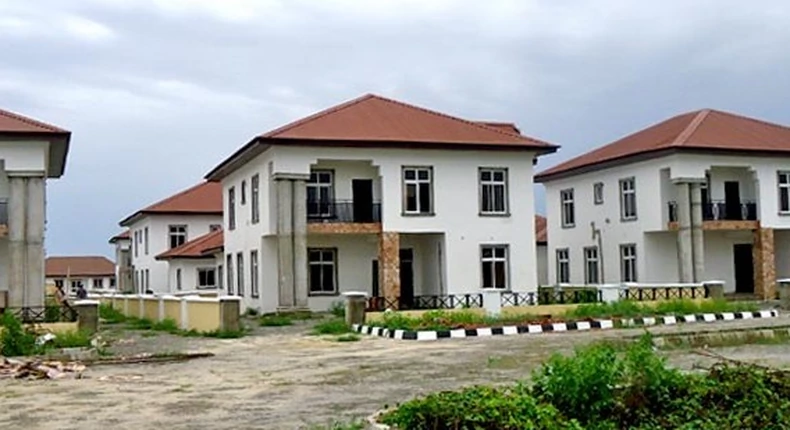Nigeria has the largest economy and is highly populated in the whole of West Africa which has made the country very notable.
It has been recorded over the years that Nigeria is leading when it comes to financing, entertainment, and trade. Also, some sectors are rapidly thriving in Nigeria and one of the prominent ones is real estate.
Nigerian cities such as Lagos and Abuja are top cities where real estate is working fantastically well.
Though, presently, Ibadan is also a city to be reckoned with in terms of real estate.
However, it’s not a walk in the park.
Despite having the wherewithal to make you rich, you still have to work for it. And this can be achieved with the right strategy, process, information, and consistency. You should also learn how the market works.
Why should you focus on real estate in Nigeria?
1) There is always a high demand
Nigeria is densely populated. And for cities like Lagos and Ibadan, there is a permanent demand for housing.
Right now, studies have shown that people are moving down to Ibadan in droves, hence, housing is in greater demand than it used to be a few years ago. And the more the demand, the higher the property value.
Focusing on real estate in the densely populated city is a smart move because you get to make your money in no time. You can’t focus on real estate in just any city in Nigeria.
Do your research to pick cities that can give an immense return on capital. In the North, Kaduna is also a good place to buy a property.
I know you may not want to go there because of insecurity. Nonetheless, it’s a suggestion.
According to the World Bank, Nigeria has an urban population growth rate of 4.1 percent, with about 52 percent of the country’s population living in urban areas.
Indeed, a UN Department of Economic and Social Affairs report suggested that around 700,000 thousand housing units will have to be built every year in Nigeria to keep up with the steady growth in demand for housing.
Can you see that real estate is a perfect idea? We are yet to meet up with building 700,000 housing units, so you have more than enough space to make your money.
There is a permanent need for houses, office spaces, etc. in Nigeria. If I were you, I would seize the opportunity to focus on fast-developing cities.
2) Prime location with a high return on investment
For some years now, there has been significant development in cities like Abuja and Lagos.
And like I earlier stated, Ibadan is also following the path. A place that is significantly developing will positively affect the property market.
However, the rapid development of a city doesn’t mean it affects every area within the city. Knowing the exact location also helps in having a higher property value.
For example, major parts of Lagos Island are more expensive than parts of the Lagos Mainland. Likewise in Abuja, places like Maitama have a higher property value. Ibadan has Bodija, Oluyole, and Elebu.
These places have a significant concentration of High-Net worth Nigerians and residency of some high-profile Nigerians and even foreigners.
A 3-bedroom apartment in some places in Island typically sells for N100 million while a 5-bedroom house could cost up to N450 million. It costs more in Abuja.
Moreover, due to the considerable cost of purchasing properties, rental properties also remain highly valuable and in demand. Rent for a 3-bedroom apartment in Lagos could go as high as 10 Million per annum.
3) Financing Flexibility
The dollar rate and inflation have made housing capital intensive in Nigeria because the cost of building materials keeps surging which has made building a house on the high side.
A significant number of banks and commercial institutions offer mortgages to support real estate investors. Interest rates for mortgage products typically range between 15%-25% per annum for a tenor up to 20 years.
Due to this, some mortgage banks including cooperative Mortgage Bank reduced their rates by taking the burden of building residential properties and placing those properties on mortgages at single-digit interest rates of about 9% per annum.
Also, they designed a convenient system where Mortgage members can make convenient monthly contributions to the mortgage bank to qualify them for affordable and quality homes over time.
In the public sector, schemes such as the National Housing Fund was initiated to provide affordable mortgages that make residential real estate more accessible to Nigerian residents































